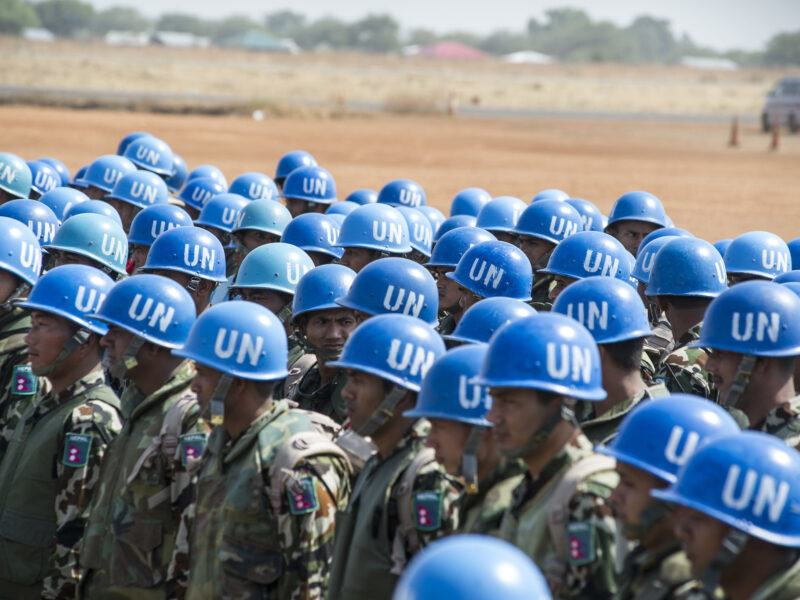Remembering Russia’s full-scale invasion of Ukraine
24 februari, 2023A personal account on Russia’s full-scale invasion of Ukraine from Julia Sedyk and Carl Fredrik Birkoff, Project Coordinator and Project Manager.
As I wrote in a previous article at the FBA blog, the impact and cost of insecurity resulting from violent extremism is enormous and is a risk to Kenya’s development agenda. The radicalisation and violent extremist phenomena are disproportionately impacting youth and women from marginalised areas. There is growing global recognition that women play multiple roles both within violent extremist organisations and in preventing and countering violent extremism (P/CVE). In a recent study of 15 countries, the Women’s Alliance for Security Leadership concluded that women’s rights groups were often the first to warn about the signs of rising violent extremism. However, very little is known about women and violent extremism in the context of Kenya.
The Institute for Security Studies (ISS) recently produced the study “Violent Extremism in Kenya: Why Women are a Priority” commissioned by UN Women Kenya. The study showed that while there is little evidence of women from Kenya perpetrating acts of violent extremism, women are actively involved in non-combative roles such as recruiting, gathering intelligence, facilitating funding, radicalising their children, and providing the invisible support structure for violent extremists, such as supplying food, shelter and medical care for fighters.
The findings in the study demonstrate that violent extremism has multiple, and often mutually reinforcing, effects on the lives of women, their families and communities in Kenya. Most importantly for this study, the findings show that limited attention has been given to women’s roles, issues and needs in relation to radicalisation and violent extremism in Kenya. Two key issues emerge from the findings in this study in relation to positioning women in P/CVE responses going forward.
First, there is a need to pursue a gendered development approach to P/CVE in order to unravel the complex web that binds the drivers, impacts and responses to violent extremism in affected communities in Kenya. This would include initiatives such as the creation of education and employment opportunities for women, access to capital, combating historic marginalisation, poor governance and corruption, and programmes that address the causes of the sustained feminisation of poverty.
Secondly, more attention needs to be given to women’s involvement in P/CVE at the grassroots level. Tapping into the roles women can play to counter violent extremism within their own communities is especially important to build sustainable peace at the local level.
Failure to widen the lens through which women’s connection(s) with violent extremism is/are perceived will hamper efforts to comprehensively address the changing nature of violent extremism, as well as the multifaceted impact of violent extremism, in Kenya – and will miss the opportunity to fully engage women in effective efforts to counter violent extremism in society.
UNDP Kenya has recently developed the Preventing Violent Extremism Networks Together (PREVENT) project. The project aims at enhancing lessons on building resilience of at-risk communities against extremist narratives that can lead to violent extremism. The project aims to facilitate disengagement and reintegration through psycho-social support and rehabilitation of returnees, leverage conversations based on emerging research to promote social cohesion; and facilitate development-led pathways at national and county levels to promote alternative livelihoods. The project will focus on youth and women to support the development of economic livelihoods and targets ‘epicenter’, ‘spillover’ and ‘at-risk’ communities where youth and women are at risk of both radicalisation; and are victims of violent extremist acts.
The conclusion is that the link between poverty and violent extremism is compelling and thus the need to address inequalities in order to fight the menace of extremism. Only by tackling entrenched economic and gender-based inequalities can Kenya achieve sustainable prosperity, end the scourge of poverty and prevent violent extremism. Fully implementing the 2030 Agenda for Sustainable Development and the Sustaining Peace Agenda should be seen as a core part of the efforts.
av Carl Fredrik Birkoff, Julia Sedyk
Many people imagine war as life buried under rubble, isolated and broken. That is one face of it, for sure. But the other side is much more surreal: a “normal” routine that persists despite everything.

FN-dagen infaller den 24 oktober. När organisationen nu firar sin 80-årsdag är det många som undrar hur den mår.

Amidst rising global tensions and a continuous increase of authoritarianism, polarisation and disinformation, the need for evidence-based solutions for conflict resolution, prevention and peacebuilding is now more crucial than ever before.

Democratic practices have a long history in Iraq. But as a consequence of the more recent decades of authoritarian and centralized rule, the distinct responsibilities of citizens and the state in a democracy cannot be taken for granted.